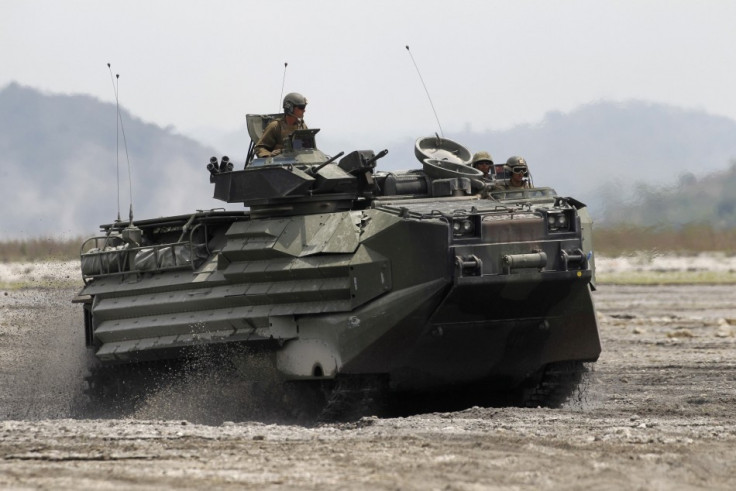Global Military Spending Down 0.5% in 2012 on US and European Defence Budget Cuts
UK's military expenditure down 0.2 percent at $60.8bn in 2012

Military spending across the globe has declined in 2012 as major spending cuts in the US and Europe more than offset higher spending by emerging economies such as China and Russia, according to Stockholm International Peace Research Institute (SIPRI).
SIPRI noted that world military expenditure declined for the first time since 1998, falling 0.5 percent to $1.75tn (£1.14tn, €1.33tn) in 2012.
"We are seeing what may be the beginning of a shift in the balance of world military spending from the rich Western countries to emerging regions, as austerity policies and the drawdown in Afghanistan reduce spending in the former, while economic growth funds continuing increases elsewhere," said Dr Sam Perlo-Freeman, director of SIPRI's Military Expenditure and Arms Production Programme.
Despite the drop, the global total was still higher than the peak near the end of the cold war, SIPRI noted.
Struggling to recover from an economic slowdown through austerity measures, the US has lowered its military spending by 6 percent to $682bn. War spending in the country declined to $115bn in 2012 from $159bn a year ago. It was for the first time that the country's share of global military spending going below 40 percent since the collapse of the Soviet Union.
Nevertheless, the US holds the lion's share of military spending in the world, which is more than four times larger than that of China. The Communist nation claimed the second place on the list with an expenditure of $166bn, up 7.8 percent on year.
"The USA and its allies are still responsible for the great majority of world military spending. The NATO members together spent a trillion dollars," Perlo-Freeman added.
Military spending in Western and Central Europe fell by 1.6 percent between 2011 and 2012, due to the financial crisis that began in 2008. Between 2008 and 2012, the UK cut spending by 5.2 percent and France by 3.8 percent, while Germany actually increased spending by 2.6 percent.
Spending in the UK and Germany, who are major spenders in the region, is projected to fall further over the next few years. The UK was ranked fourth-biggest spender with military expenditure at $60.8bn in 2012, down 0.8 percent, while Japan was fifth, with a 0.6 percent decline to $59.3bn.
Among emerging economies, Russia increased its spending by 16 percent to become the third-largest in the world. India posted a marginal decline in spending, while Brazil's expenditure was almost flat.
Amid political tensions in areas such as the South China Sea, military spending in Asia was up 3.3 percent in 2012.
"All the indications are that world military spending is likely to keep falling for the next two to three years-at least until NATO completes its withdrawal from Afghanistan at the end of 2014," Perlo-Freeman said looking ahead.
"However, spending in emerging regions will probably go on rising, so the world total will probably bottom out after that."
© Copyright IBTimes 2025. All rights reserved.






















